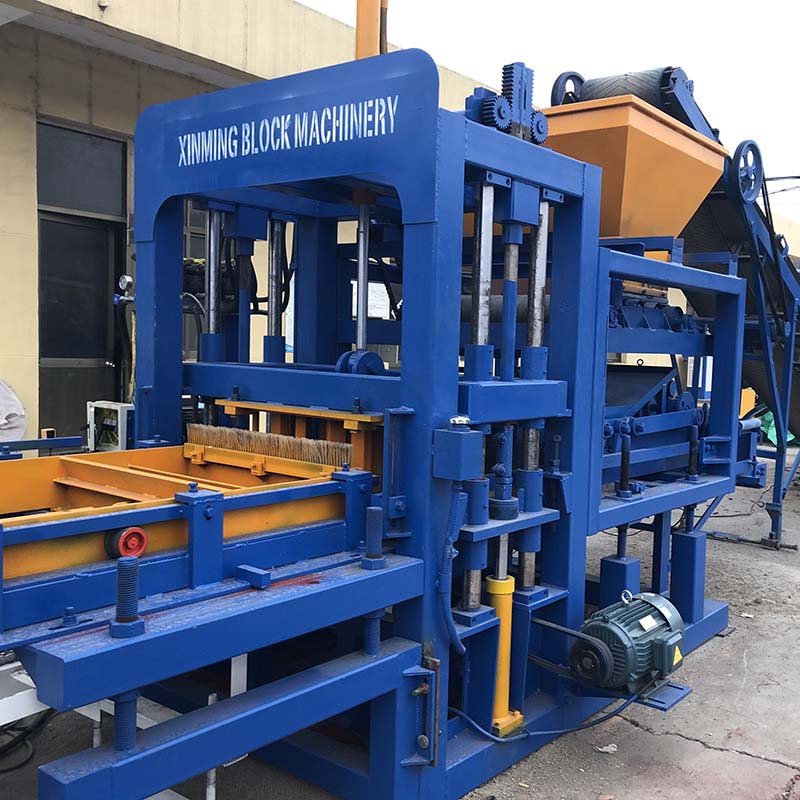
Image source:Aiwei block machine
Introduction
The brick-making industry plays a pivotal role in construction across the globe. Bricks are a fundamental building material, known for their durability, versatility, and aesthetic appeal. In recent years, brick making has seen significant technological advancements, leading to the development of various types of brick making machines. However, the prices of these machines can vary significantly. In this article, we will delve into the multifaceted factors that influence brick making machine prices.
1. Machine Capacity
One of the most critical factors influencing brick making machine prices is its capacity. The capacity refers to the number of bricks a machine can produce in a given time frame. Typically, brick making machines are categorized into different classes based on their capacity. These categories include manual machines, semi-automatic machines, and fully automatic machines. As the capacity increases from manual to fully automatic, so does the price. The higher the capacity, the more bricks it can produce in less time, making it a preferred choice for large-scale brick production.
2. Automation Level
The level of automation in a brick making machine is another vital determinant of its price. Manual machines require significant human intervention in the brick-making process, making them more affordable but less efficient. Semi-automatic machines strike a balance between manual and automatic operation, whereas fully automatic machines are highly automated and require minimal human intervention. The higher the automation level, the more sophisticated the machine’s technology, resulting in a higher price tag.
3. Technology and Features
Advancements in technology have brought about numerous features and innovations in brick making machines. These features can significantly impact the price. For example, some modern brick making machines come equipped with integrated computer systems that allow for precise control over the brick-making process. They may also have features like auto-cleaning, auto-lubrication, and real-time monitoring. These advanced features enhance efficiency but also add to the cost of the machine.
4. Raw Material Compatibility
Brick making machines are designed to work with various raw materials, including clay, concrete, fly ash, and sand. The type of raw material a machine is compatible with can influence its price. Machines that can handle a wide range of raw materials tend to be more expensive due to their versatility. Additionally, the quality and availability of raw materials in a specific region can affect the demand for machines designed for those materials, thus impacting prices.
5. Production Output and Speed
The production output and speed of a brick making machine are closely related to its capacity and automation level. Machines designed for high-speed production with consistent output quality are generally more expensive. Speed and output capacity are vital considerations for brick manufacturers looking to meet tight construction deadlines or produce bricks in large quantities.
6. Quality and Durability
The build quality and durability of a brick making machine significantly affect its price. High-quality machines are made from robust materials and precision-engineered components that ensure longevity and reliability. These machines may come with warranties, further justifying their higher price. In contrast, lower-priced machines may compromise on quality and durability, leading to higher maintenance costs in the long run.
7. Brand Reputation and Customer Support
The reputation of the manufacturer and the availability of reliable customer support can also impact the price of brick making machines. Well-established manufacturers with a history of producing quality machines tend to command higher prices. Buyers often place value on the assurance of post-purchase support, spare parts availability, and technical assistance.
8. Regional Variations
Brick making machine prices can vary significantly from one region to another. Local demand, economic conditions, and the cost of manufacturing can all influence regional pricing. Additionally, government policies, import/export tariffs, and taxes may affect the final cost of these machines in specific areas.
Conclusion
In conclusion, the price of a brick making machine is influenced by a multitude of factors, each playing a crucial role in determining the machine’s cost. These factors include machine capacity, automation level, technology and features, raw material compatibility, production output and speed, quality and durability, brand reputation, customer support, and regional variations. As the brick making industry continues to evolve, understanding these factors becomes essential for both manufacturers and buyers to make informed decisions when investing in brick making machinery.
